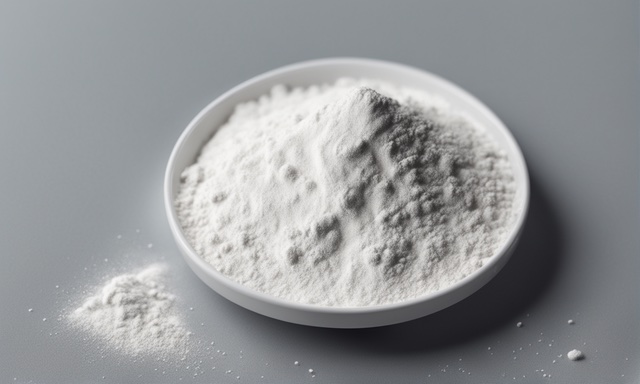Internet Asks: "Collagen Hyaluronic Acid"
Collagen and hyaluronic acid are two naturally occurring substances in the body, often lauded for their potential benefits to skin health and more. As key components in various skincare and health supplements, their popularity has surged over the past decade. This article delves into the functions, benefits, and applications of these two vital molecules.
sponsored links

Collagen: The Body's Building Block
Collagen is the primary structural protein found in skin and other connective tissues, playing a pivotal role in maintaining the strength and elasticity of the skin. It acts as the scaffolding that provides structure and support for the skin, bones, muscles, and tendons. There are several types of collagen, but Type I collagen is the most abundant and robust type found in the human body.
Types of Collagen:
- Type I: The most abundant type in the human body, Type I collagen provides structure to skin, bones, tendons, fibrous cartilage, connective tissue, and teeth.
- Type II: This type is found in elastic cartilage and serves as a cushion for the joints.
- Type III: Often found alongside Type I, Type III supports the structure of muscles, organs, and arteries.
- Type IV: It helps with filtration and is located in the layers of your skin.
Benefits and Functions of Collagen:
- Skin Health: Collagen maintains skin elasticity and hydration. As we age, collagen production decreases, leading to wrinkles and other signs of aging.
- Joint Health: Collagen provides cushioning for our joints and supports their overall health.
- Bone Health: Bones are primarily made of collagen, giving them structure and preventing brittleness.
Sources of Collagen:
- Natural Production: The human body naturally produces collagen.
- Supplementation: Collagen supplements are derived from animal products such as bone broth, fish, and bovine sources. They come in various forms, including powders, capsules, and creams, allowing users to incorporate them seamlessly into their wellness and beauty regimens.
- Dietary Sources:Foods rich in protein, like chicken, fish, egg whites, dairy, and beans, indirectly support collagen synthesis.
sponsored links
Hyaluronic Acid: Nature's Moisturizer
Hyaluronic acid is a glycosaminoglycan, a vital compound that maintains skin hydration due to its incredible water retention properties. It can hold up to 1000 times its weight in water, making it an exceptional hydrating agent. It’s primarily found in the skin, eyes, and connective tissues, keeping them well lubricated and moist.
Benefits and Functions of Hyaluronic Acid:
- Skin Hydration: Due to its moisture-retaining properties, HA is critical for skin hydration, giving the skin a plump, youthful appearance.
- Joint Health: HA is found in the synovial fluid of the joints, acting as a lubricant and shock absorber.
- Eye Health: HA provides moisture and nutrients to the eyes, ensuring they remain well-lubricated.
Sources of Hyaluronic Acid:
- Natural Production: Present in the body, predominantly in the skin, eyes, and joints.
- Supplements: HA is widely available in the form of supplements, serums, creams, and injections.
- Skincare Products: Widely used in creams, serums, and other skincare formulations.
Synergistic Effect: Collagen & Hyaluronic Acid Together
When used concomitantly, collagen and hyaluronic acid create a synergistic effect, amplifying each other’s benefits:
- Enhanced Skin Hydration: Collagen provides structure while hyaluronic acid ensures the skin remains hydrated and youthful.
- Joint Health Support: Both compounds contribute to maintaining joint health, working together to provide structure and lubrication.
Conclusion
Collagen and hyaluronic acid are integral to the body's structure and function, providing support and hydration to the skin and joints. Incorporating these substances through diet, supplements, or skincare products can support the body's natural processes, promoting health and beauty from within. For personalized advice and guidance, consider consulting healthcare or skincare professionals.
Disclaimer: The information provided in this article is for educational purposes only and should not be considered medical advice. Always consult with a qualified healthcare provider before starting or changing any supplementation or skincare routine.
sponsored links
References
1. Harvard University. Considering collagen drinks and supplements?. https://www.health.harvard.edu/blog/considering-collagen-drinks-and-supplements-202304122911
2. WebMD. Health Benefits of Collagen. https://www.webmd.com/diet/collagen-health-benefits#:~:text=Collagen%20is%20a%20protein%20responsible,your%20body%20to%20produce%20more
3. Harvard T.H. Chan School of Public Health. Collagen. https://www.hsph.harvard.edu/nutritionsource/collagen/
4. WebMD. Hyaluronic Acid. https://www.webmd.com/vitamins/ai/ingredientmono-1062/hyaluronic-acid
5. Harvard T.H. Chan School of Public Health. The hype on hyaluronic acid. https://www.health.harvard.edu/blog/the-hype-on-hyaluronic-acid-2020012318653
6. Cleveland Clinic. Collagen. https://my.clevelandclinic.org/health/articles/23089-collagen
People are also reading...
Carbs In Guacamole?
Calories in a Grilled Cheese?
Chipotle Chicken Bowl Calories?
Is Ginger Tea Good for Acid Reflux?
Is Yogurt Acidic?
6 oz Steak Calories?
Ready to level-up?
Create meal plans 10x faster, follow up with your clients through our mobile app, and never struggle with meal planning or recipe management again.